Related Research Articles
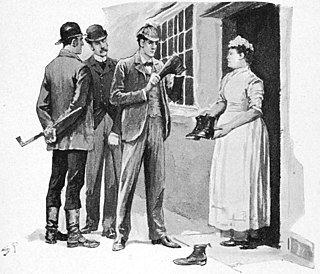
Detective fiction is a subgenre of crime fiction and mystery fiction in which an investigator or a detective—whether professional, amateur or retired—investigates a crime, often murder. The detective genre began around the same time as speculative fiction and other genre fiction in the mid-nineteenth century and has remained extremely popular, particularly in novels. Some of the most famous heroes of detective fiction include C. Auguste Dupin, Sherlock Holmes, and Hercule Poirot. Juvenile stories featuring The Hardy Boys, Nancy Drew, and The Boxcar Children have also remained in print for several decades.
Ellery Queen is a pseudonym created in 1929 by American crime fiction writers Frederic Dannay and Manfred Bennington Lee and the name of their main fictional character, a mystery writer in New York City who helps his police inspector father solve baffling murders. Dannay and Lee wrote most of the more than thirty novels and several short story collections in which Ellery Queen appeared as a character, and their books were among the most popular of American mysteries published between 1929 and 1971. In addition to the fiction featuring their eponymous brilliant amateur detective, the two men acted as editors: as Ellery Queen they edited more than thirty anthologies of crime fiction and true crime, and Dannay founded and for many decades edited Ellery Queen's Mystery Magazine, which has been published continuously from 1941 to the present. From 1961, Dannay and Lee also commissioned other authors to write crime thrillers using the Ellery Queen nom de plume, but not featuring Ellery Queen as a character; several juvenile novels were credited to Ellery Queen, Jr. Finally, the prolific duo wrote four mysteries under the pseudonym Barnaby Ross.
The police procedural, police show, or police crime drama, is a subgenre of procedural drama and detective fiction that emphasizes the investigative procedure of a police officer or department as the protagonist(s), as contrasted with other genres that focus on either a private detective, an amateur investigator or the characters who are the targets of investigations. While many police procedurals conceal the criminal's identity until the crime is solved in the narrative climax, others reveal the perpetrator's identity to the audience early in the narrative, making it an inverted detective story. Whatever the plot style, the defining element of a police procedural is the attempt to accurately depict the profession of law enforcement, including such police-related topics as forensic science, autopsies, gathering evidence, search warrants, interrogation and adherence to legal restrictions and procedure.
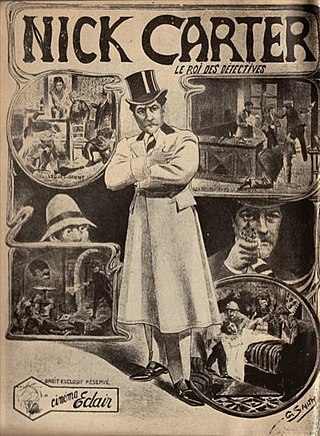
A mystery film is a genre of film that revolves around the solution of a problem or a crime. It focuses on the efforts of the detective, private investigator or amateur sleuth to solve the mysterious circumstances of an issue by means of clues, investigation, and clever deduction.
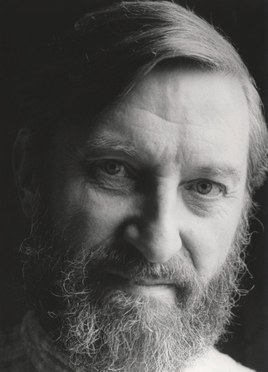
Henry Reymond Fitzwalter Keating was an English crime fiction writer most notable for his series of novels featuring Inspector Ghote of the Bombay CID.
An inverted detective story, also known as a "howcatchem", is a murder mystery fiction structure in which the commission of the crime is shown or described at the beginning, usually including the identity of the perpetrator. The story then describes the detective's attempt to solve the mystery. There may also be subsidiary puzzles, such as why the crime was committed, and they are explained or resolved during the story. This format is the opposite of the more typical "whodunit", where all of the details of the perpetrator of the crime are not revealed until the story's climax. The first such story was R. Austin Freeman's The Case of Oskar Brodski published in Pearson's Magazine in 1912.

Hell Is a City is a 1960 British crime thriller film based on the 1954 novel of the same title by Maurice Procter. Written and directed by Val Guest, it was made by British studio Hammer Film Productions and filmed in Manchester. It was partly inspired by the British New Wave films and resembles American Film Noir.
Maurice Procter was an English novelist. He was born in Nelson, Lancashire, England.
Inspector Joseph French is a fictional British police detective created by Irish author Freeman Wills Crofts. French was a prominent detective from the Golden Age of Detective Fiction, appearing in twenty nine novels and a number of short stories between 1924 and 1957. The character was introduced in the 1924 novel Inspector French's Greatest Case, where he investigates a deadly diamond robbery in Hatton Garden. The series relied largely on puzzle mysteries.
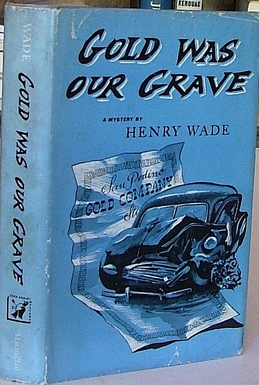
Gold Was Our Grave is a 1954 mystery detective novel by the British writer Henry Wade. It was the seventh and last in a series of novels featuring the character of Inspector Poole, published during the Golden Age of Detective Fiction.
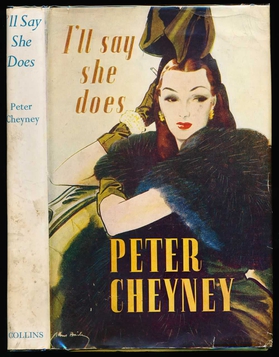
I'll Say She Does is a 1945 thriller novel by the British writer Peter Cheyney. It is the tenth in his series of novels featuring the FBI agent Lemmy Caution. Later editions of the book are generally titled I'll Say She Does!

Your Deal, My Lovely is a 1941 thriller novel by the British writer Peter Cheyney. It is the seventh in his series of novels featuring the FBI agent Lemmy Caution. Much of the action takes place in wartime London. Caution is called in to investigate the disappearance of a prominent scientist.

The Murders in Praed Street is a 1928 detective novel by John Rhode, the pen name of the British writer Cecil Street. It features the fourth appearance of the armchair detective Lancelot Priestley, who figured in a long-running series of novels during the Golden Age of Detective Fiction.
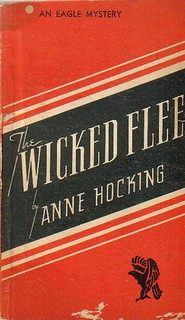
The Wicked Flee is a 1940 mystery crime novel by the British writer Anne Hocking. It was the second novel in a long-running series featuring her detective character Chief Inspector William Austen of Scotland Yard.

Rich Is the Treasure is a 1952 crime novel by the British writer Maurice Procter. It is the second in a trilogy featuring Scotland Yard Detective Superintendent Philip Hunter, which he wrote alongside the better known series featuring Chief Inspector Harry Martineau. The plot revolves around a gang creating counterfeit diamonds.
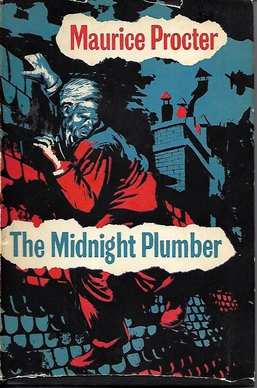
The Midnight Plumber is a 1957 crime novel by the British writer Maurice Procter. It is the second in his series featuring Chief Inspector Harry Martineau, set in the Northern industrial city of Granchester. It was published in the United States by Harper the following year.
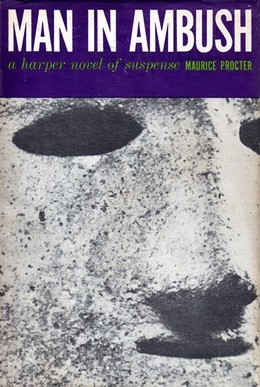
Man in Ambush is a 1958 crime novel by the British writer Maurice Procter. It is the third in his series featuring Chief Inspector Harry Martineau, set in the Northern industrial city of Granchester. It takes the form of a police procedural. Published by Hutchinson, it was released in the United States by Harper & Row the following year.
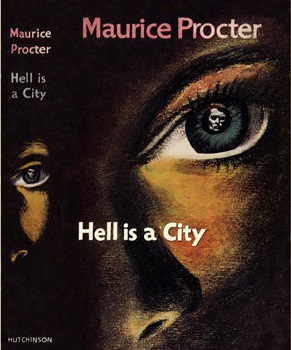
Hell Is a City is a 1954 crime novel by the British writer Maurice Procter. It was the first in a series featuring Chief Inspector Harry Martineau, set in the Northern industrial city of Granchester. It takes the form of a police procedural, and marked a transition away from the traditional Golden Age detective novel. Published by Hutchinson, it was released in the United States by Harper the same year under the alternative title Somewhere in This City.